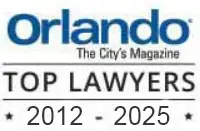When calculating car accident settlements, insurance companies consider many factors. Broadly speaking, the adjuster will factor in liability, medical expenses, the cost to the injured in terms of lost income and wages, and pain and suffering.
Yet insurance companies are not paid to maximize the amount of money you receive. In fact, it is likely the adjuster has been instructed on how to minimize or even deny compensation.
Our goal as car accident lawyers is to maximize your claim and ensure the insurance companies treat you fairly.
Speak with an experienced Florida attorney at our firm today.
Call 855-Kramer-Now (855-572-6376).
Calculating Car Accident Settlements
Insurance adjusters and accident lawyers both rely on established formulas to help them reach a ball park figure to understand what compensation will reasonably cover your losses.
Insurers often use computer programs by which expenses incurred from a claimant’s injuries and medical treatment are derived. However, the insurance company is not obligated to calculate various non-economic losses (e.g., pain and suffering) by the same method your attorney uses.
The insurance adjuster (and your attorney) examine various personal injury settlement factors as they examine probable settlement values, including
- Bodily Injury Liability Insurance
- Uninsured/Underinsured Motorist Insurance
- Liability (who is at fault)
- Comparative negligence
- Permanent injury
- Pain and suffering
- Loss of consortium
Following is a brief look at each.
How Insurance Impacts Florida Car Accident Settlements
The amount of insurance or other assets available plays an important role in your settlement, as this affects the ability of the person who caused your injuries to pay.
Personal Injury Protection / No Fault Insurance
All Florida car owners must carry a minimum of $10,000 in PIP insurance coverage. Florida is a no fault state, therefore PIP not based on fault or liability. Most minor accidents will fall under no-fault insurance. There is no need to talk with insurance companies about who was at fault in the accident.
What Recourse Do I Have if My Injuries Are Serious?
When an accident causes permanent and disabling injuries, Florida law permits an injured person to file a liability claim, and a lawsuit if need be, against the at-fault party. This law ensures that victims who have suffered serious and catastrophic injuries receive vital financial compensation that PIP insurance cannot cover.
Bodily Injury Liability Coverage (BI or BIL)
BI’s purpose is to protect you if you are at fault in an accident that caused injury to others. BI is not mandatory in Florida, unless you have been convicted of DUI. However, carrying Bodily Injury Liability insurance coverage is a good idea.
If you are found liable to some extent in a car accident, BI pays for serious and permanent injury or death to others caused by your negligence. This includes damages for the pain and suffering of seriously injured parties.
BI insurance also pays for injuries caused by relatives that live with you, even if they were driving someone else’s automobile. Other people driving your car with your consent may also be covered.
Finally, BI insurance pays for your defense attorney if the injured party sues you.
Uninsured Motorists/Underinsured Motorists (UM)
UM’s purpose is to protect you when others are at fault in an accident that caused injury to you.
You purchase UM insurance as part of your auto insurance policy. UM Insurance pays for medical expenses, lost wages (beyond your PIP coverage), bodily injury, sickness or death resulting from a car accident caused by another’s negligence.
In addition, UM insurance covers your passengers or family members who are driving the vehicle at the time of such an accident in which others are at fault.
What if the person who caused the accident does not have insurance?
That is when you may make a claim under the UM provision of your own insurance policy—if you have purchased it. If you have not elected to purchase UM, then that option is out and you get nothing. It is easy to see why UM is one of the most important forms of insurance coverage in our state.
Establishing Liability for the Car Accident
Personal injury cases typically require proof of fault. Who was negligent or reckless and therefore responsible for the accident that caused the injuries?
As stated earlier, only when your injury claim is serious enough may you file a liability claim against the at-fault driver’s insurance provider. In Florida, the criteria is when there is permanent injury or significant and permanent scarring or disfigurement.
The liable person’s insurance company will generally be responsible for paying the injured party compensation for the following:
Economic damages — Losses are more or less straightforward and can be itemized fairly easily:
- Cost of past, present and future medical treatment
- Lost wages
- Other financial consequences
- Non-economic damages — Losses for which money is only an abstract value and are not as clear-cut to determine:
- Permanent injury and disfigurement
- Pain and suffering
- Emotional damages
- Loss of quality of lifeHow Comparative Negligence Plays into a CaseUnder Florida statutes of comparative negligence, an injured party’s compensation may be reduced to reflect his or her percentage of liability in the accident. So the insurance adjuster is going to assess liability and assign comparative negligence considering all at-fault parties.
- What if the plaintiff was also careless and played a part in causing the accident?
- And whether dollar amounts are straightforward or abstract, the insurance company may dispute the extent of past and future medical bills and loss of income claimed, as well as the amount non-economic compensation sought.
Permanent Injury in a Settlement Valuation
If you suffered permanent injuries in a car accident, the amount of damages awarded can increase substantially. Even a minor long-term injury can greatly increase an award. Thus, the more crippling the effect is upon your life over time, the more damages you may recover.
This includes damages for pain and suffering. Under Florida law, a car accident victim must have suffered a permanent injury in order to recover damages for pain and suffering.
The insurance adjuster will closely examine the facts of the accident, and is going to require evidence showing that your injuries are permanent, via documented medical opinions, medical records and medical testimony.
Pain and Suffering
A critical factor in valuating a car accident settlement depends on demonstrating pain and suffering— the physical and emotional distress endured by the injured.
Factoring into the value of pain and suffering is the type of injury you have suffered. Insurance adjusters will categories injuries as either “soft tissue” or “hard” injuries.
- Soft tissue injuries include damage to muscles, tendons, ligaments as well as disc damage, bruising and abrasions. If soft tissue damage is not permanent or residual, it may be viewed as less severe by the insurance adjuster.
- Hard injuries range from broken limbs, fractures, long-term disability such as brain damage, spinal cord injury, paralysis, organ damage, and disfigurement. These are generally viewed as more severe injuries.
Loss of Consortium
“Loss of consortium” is a recoverable damage and should be considered in the valuation of car accident settlements.
Loss of consortium is most commonly known as the damage a spouse suffers due to the loss of companionship, support, solace and intimacy with their injured loved one.
Loss of consortium also covers:
- the damage a parent suffers due to the loss of a minor child’s love and companionship, when the child has suffered permanent injury;
- The damage suffered by a dependent child when that child lost his or her parent’s support, companionship and services because the parent has been seriously and permanently injured.
If the case goes to trial, the jury assigns damages to the injured party and the spouse separately. This means the injured and the injured’s spouse get fully compensated. Naturally the amount awarded depends on the ability to prove the accident victim’s injuries have taken a toll on the marriage.
Pain and suffering and loss of consortium are non-economic factors. There are no set rules for determining the worth of pain and suffering.
In most cases, insurance providers—whether it is your own UM protection or the at-fault party’s insurance company—will fight to minimize the compensation you get for pain and suffering and loss of consortium.
That is where an injury lawyer at TK Law excels. We have the experience, skill and determination necessary to successfully negotiate and litigate pain and suffering and loss of consortium cases. By looking at similar case histories, studying court records and various other sources of reference, we establish a realistic, effective claim for compensation built on a solid legal and financial foundation.
Speak with an experienced Florida attorney at our firm today.
Call 855-Kramer-Now (855-572-6376).
How Do You Know if the Insurance Company’s Settlement Is Fair?
The question remains, when the insurance company comes to you with their car accident settlement figure, is it fair? Are they looking after your best interests?
Insurance companies pay close attention to whether the injured is represented by a lawyer. The reality is many insurance companies take advantage of accident victims the moment they realize they do not have skilled legal representation. Insurance companies profit from undercompensating injury victims.
The resulting loss of financial compensation to an injury victim and his or her family can be devastating.
Your One Firm for Life
If you were recently injured in a car, truck or motorcycle accident and are considering filing a claim against the responsible party, contact us. Let us hear the details and see what we may be able to do for you.
When it comes to choosing the lawyer who will represent you, the most valuable time you can spend is in an initial consultation. We encourage you to arrange to speak with an Orlando attorney at TK Law today.
We will be there for you, to stand with you through this difficult time and make sure you and your family are taken care of.











